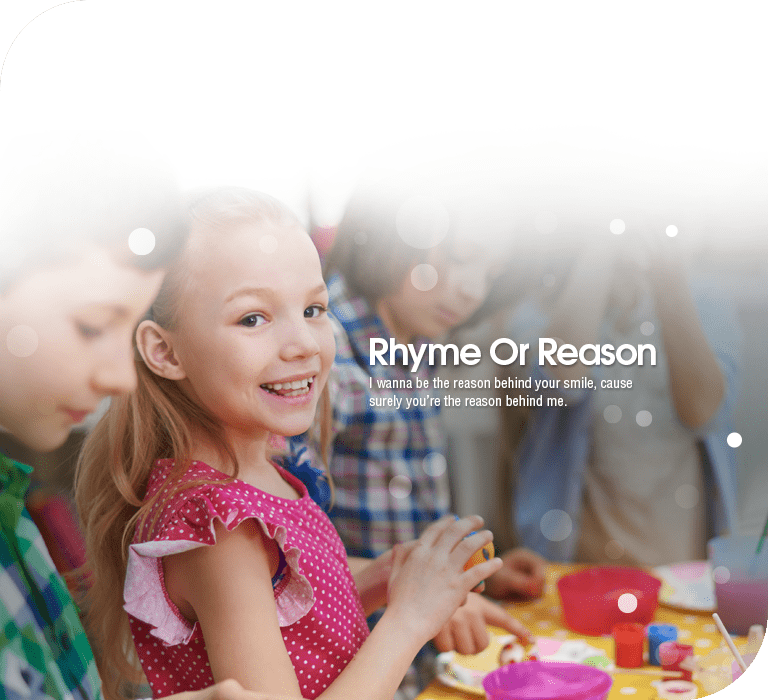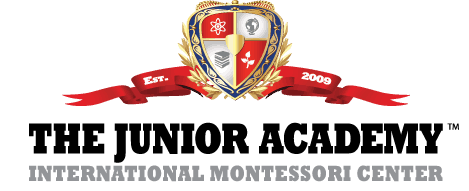
FAQs
Below is a list of frequently asked questions (FAQs) and then answers about The Junior Academy – A Living Montessori. Kindly click onto the questions to read more.
1. When can my child start school ?
At The Junior Academy, you may enrol your child throughout the year.
2. What is the application process for new students?
Interested parents should contact us to schedule an evaluation or assessment interview with a member of our academic staff. Upon approval, the Application for Enrolment Form should be completed along with an annual payment Registration fee of RM150. Once a class spot is available, the RM350 (one off payment) of Application and Enrolment fees, deposit of RM500 (refundable) and instalment tuition fees are payable before commencement of the class.
3. What is the procedure of an evaluation or assessment interview? Who determines if my child is eligible?
Evaluation will be conducted by a member of our academic staff. Your child will be allowed to enter the class to get a feel of the classroom setting and to work on some basic materials. An assessment interview will take place between our academic staff and the parent. Upon confirmation, your child will be allotted a spot.
4. What if I am unsure if my child is ready for a classroom setting?
The Junior Academy offers one day free trial class option that will allow your child to experience one of our program. For children ages 3-6 years old may enrol for the one week paid trial program.
5. What age group of children do you accept in your school?
We accept children from ages 1 years to 6 years old.
6. What programs do you offer in your school?
We offer Infant, Toddler, Jr Prep, Extended Prep, Honors and enrichment programs in the school.
7. What are the education levels/backgrounds of the teachers?
At TJA, all our teachers are early years and Montessori trained. Our teachers consistently attend in-house training conducted by our qualified Montessori consultant/lecturer. We constantly keep abreast with Montessori teachings and the philosophy in mind.
8. What are the ratios of children to teachers?
The child to teacher ratio is mixed aged group. For Infant children ages 1-2 years, one parent will accompany the child into the class with a class size of 2 teachers to 6 Infants, For children ages 2-3 years, we maintain a class ratio of 1 teacher to 4-6 students. For children ages 3-6 years, we maintain a class ratio of 1 teacher to 8 students.
9. How can I follow my child's progress In class?
At TJA, each child will receive a monthly Student Goal Sheet based on the Montessori work materials. Your class teacher will conduct observation report monthly to monitor your child’s progress. Parents may log into our online Montessori Compass tool to check on their child’s progress in class.
10. Do students have any homework?
Homework will be given to children ages 4-6 years old at the discretion of your class teacher. We encourage parents guidance in helping your child’s process of learning.
11. What if my child has allergies?
The Application for Enrollment form includes a student’s medical history that is to be completed by all. At TJA, we make every attempt to maintain an allergen-free environment. We are peanut free zone
12. What are the program hours?
Kindly refer to Class Schedule for specific program hours.
13. What is the length of a typical school calendar year?
The Junior Academy is open all year, with holiday breaks occurring one week in April, summer breaks 5 weeks in June/July, one week in October and three weeks in December.
14. Is there a replacement class if my child is absent?
Replacement classes are judged on an individual basis determined by availability. You may need to discuss with our academic staff.
15. Are meals/snacks provided?
Light biscuits will be served for TJA children if required. Alternatively, we may assist to order kids meal from the restaurant.
16. What is the procedure if my child misbehaves in class?
Montessori philosophy allows children to correct their own behaviour through the use of positive reinforcement. If the child continues to misbehave and become a distraction to the class, the child will be removed to sit at one quiet space (at a given time) to reflect his/her wrongdoings. Class teacher will have a short discussion with the child.
17. How secure is the facility at The Junior Academy?
At TJA, we installed security lock with intercom system to keep our children safe. Security measures are in place to make certain the person who picks up the child is the same who dropped them off. We also have mall security who patrols our wing on a regular basis. From natural lighting, non-glare lighting fixtures, an advanced security system monitored with 12 cctv cameras, comprehensive fire sprinkler systems throughout, heap air filters, to our private children restrooms.
18. Do you offer any other programs after school hours?
After school hours, The Junior Academy will enrich children with the relevant program such as Mandarin, Interactive Language, Lego Education and Music & Movement. All upcoming events can be found on our Events Calendar.
19. What is Open Concept?
The concept is simplicity in that it tries to implement a general space with a flow of smooth transition with no walls for the entire classroom. Students of different ages (usually from 2 years to 6 years old) but of close skill levels are put together in teams to be taught at different spaces in the room. In that view, it is a very child-centered classroom, and the kids can advance at their own rhythm and at their own pace.
20. Do Montessori teachers follow a curriculum?
Here at The Junior Academy, we teach the same basic skills as traditional pre-schools, and offer a rigorous academic program in the Montessori approach. Most of the subject areas are familiar such as math, science, history, geography, and language but they are presented through an integrated approach that brings separate strands of the curriculum together. Apart from Montessori materials, we also incorporate monthly thematic curriculum into our lessons.
This approach to curriculum shows the interrelatedness of all things. It also allows students to become thoroughly immersed in a topic and to give their curiosity full rein.
21. How many students are typically in a Montessori class?
Living Montessori values the lessons of community and the size of the class can be reasonably larger.
Montessori classes for children at Junior Prep level might include 20-22 students whose ages span from 3 years to 6 years old. All members of the community benefit from this set-up. Older students are proud to act as role models; younger ones feel supported and gain confidence about the challenges ahead. Classes for infants & toddlers, 1 years to 3 years old are smaller, with typically 4-6 for Infant and 10-12 for Toddlers children.
22. How can children learn if they're free to do whatever they want?
Dr. Maria Montessori observed that children are more motivated to learn when working on something of their own choosing. A Montessori student may choose his focus of learning on any given day and time, but his decision is limited by the materials and activities in each area of the curriculum that his teacher has prepared and presented to him. Students will observe the Montessori phillosophy of “Freedom within limits”.
Beginning at elementary level, students typically set learning goals and create personal work plans under their teacher’s guidance.
23. Why are Montessori classes all work and no play?
Dr. Maria Montessori realized that children’s play is their work their effort to master their own bodies and environment and out of respect she used the term “work” to describe all their classroom activities. Montessori students work hard, but they don’t experience it as drudgery; rather, it’s an expression of their natural curiosity and desire to learn.
24. If children work at their own pace, don't they fall behind?
Although students are free to work at their own pace, they’re not going it alone. The Montessori teacher closely observes each child and provides materials and activities that advance his learning by building on skills and knowledge already gained. This gentle guidance helps him master the challenge at hand and protects him from moving on before he’s ready, which is what actually causes children to “fall behind.”
25. Is it true that Montessori students have the same teacher for all subjects rather than work with “specialists” in different curricular areas?
At TJA, our Montessori teachers are educated as “generalists,” qualified to teach all sections of the curriculum. TJA teachers are qualified early years and Montessori trained and consistently attend in-house training conducted by our qualified Montessori consultant.
26. Why don't Montessori teachers give grades?
Grades, like other external rewards, have little lasting effect on a child’s efforts or achievements. The Montessori approach nurtures the motivation that comes from within, kindling the child’s natural desire to learn.
A self-motivated learner also learns to be self-sufficient, without needing reinforcement from outside. In the classroom, of course, the teacher is always available to provide students with guidance and support.
At TJA, we closely observe each student’s progress and readiness thru the monthly Student Goal Sheet to advance to new lessons. Parents may log into the Montessori Compass tool monthly to view their child’s progress. We hold family conferences twice a year so parents may see their child’s work and hear the teacher’s assessment.
27. How well do Montessori students do compared to students in non-Montessori school.
The research shows Montessori students to have greater social and behavioral skills. They demonstrate a greater sense of fairness and justice, for example, and are more likely to choose positive responses for dealing with social dilemmas.
By less stringent measures, too, Montessori students seem to do quite well. Most Montessori schools report that their students are typically accepted into the high schools and colleges of their choice. And many successful graduates cite their years at Montessori when reflecting on important influences in their life.
28. What is the difference between Montessori and traditional education?
Montessori emphasizes learning through all five senses, not just through listening, watching, or reading. Children in Montessori classroom learn at their own, individual pace and according to their own choice of concentration, motivation, self-discipline, and a love of learning. At TJA – Living Montessori classes place children in three-year age groups (1-2, 2-3, 3-6, and Enrichment Program), forming communities in which the older children spontaneously share their knowledge with the younger ones. Montessori represents an entirely different approach to education.
29. Are Montessori children successful later in life?
Research studies show that Montessori children are well prepared for later life academically, socially, and emotionally. In addition to scoring well on standardized tests, Montessori children are ranked above average on such criteria as following directions, turning in work on time, listening attentively, using basic skills, showing responsibility, asking provocative questions, showing enthusiasm for learning, and adapting to new situations

